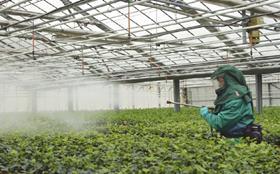
The Australian Pesticides and Veterinary Medicines Authority (APVMA) has issued a ban on use of the pesticide dimethoate, following a review on the chemical’s potential health risks.
The ban, which the industry has been expecting for some months, is likely to cause significant problems for a range of horticultural crops in Australia, particularly the oncoming summer season produce from the northern state of Queensland.
Dimethoate has been suspended for a term of 12 months as the APVMA assesses the pesticide in more detail, effective immediately.
The APVMA found that use of the dimethoate on many crops could risk the health of consumers, said the body’s pesticides programme manager Dr Raj Bhula.
“Some of the estimated exposures for consumers are above the Acute Reference Dose, reducing, but not breaching, the margins of safety that are normally in place to protect consumers,” Dr Bhula explained in a statement.
“These safety margins, built into the APVMA’s risk assessment, provide a protective buffer to ensure that consumers will not actually be exposed to high levels of residues in food. If our risk assessment shows that these standards could be exceeded, the APVMA must remove or modify the use of the chemical on the crop so that consumption remains in line with the public health standard.”
The ban is expected to cause significant problems for growers in areas affected by fruit fly, in particular those in the north of Australia, where Queensland fruit fly is endemic.
Without a clear alternative to dimethoate, the ban is likely to mean an effective loss of access by Queensland growers to the Victorian and South Australian markets, as well as for a range of exports to New Zealand.
While Queensland strawberries have luckily finished the bulk of their season, Queensland Strawberry Growers’ Association president Bill Sharpe told Fruitnet.com if the ban had come just a few week earlier, the industry would have been in severe trouble.
“Had they banned this chemical a month ago, we would have been in dire straits financially,” he said.
“We’ve got to look after the nation’s health, but we’ve also got to do it responsibly and sensibly. I don’t have a problem with banning something for health reasons, but give us something else to use.”
The chemicals methyl bromide or fenthion may be able to stand in for dimethoate in some cases, but both are also subject to health concerns, and methyl bromide can damage produce quality.
Mr Sharpe said the chemical maldison, also known as malathion, could present a possible alternative, but was still going through the approval process for horticultural use in Australia.
On the export front, the upset on the Australian domestic market from the removal of Queensland produce from the southern states and New Zealand is likely to cause a reallocation of produce previously sent to overseas markets.



